|
R E V I E W
‘Undelete’ album, by Anecdata While synthesisers had been used for many years before, what can be described as ‘British synth-pop’ originated in the late ’70 and early ‘80s with bands like OMD and the Human League. These bands in turn took inspiration from Kraftwerk. Lyrics in early songs by these bands were commonly intellectual and thought provoking, and included dystopian and sci-fi themes. This became less common with the second wave of synth-pop bands, such as Soft Cell, Yazoo, and with later releases from OMD and the Human League, where relationships and ‘love’ began to take over as a lyrical topic. Ultimately, experimentation was replaced with commodification, with bands aiming for mainstream success.
With respect to lyrical themes, Auckland’s Anecdata has more in common with the earliest of British synth-pop bands, having an obvious intellectualism to them; there certainly aren’t many songs among the Anecdata catalogue that obviously broach the subject of personal relationships (though ‘Nell’ on the current release comes close). Anecdata songs, instead, commonly revolve around politics, conspiracy theories, the supernatural and sci-fi. ‘Undelete’ is the seventh album from Anecdata, though Dan Satherley has also released a number of solo synth-pop albums previously under the names ‘Radio Over Moscow’ and ‘luna spark’. Musically, any influences Satherley has are not overtly obvious. For me though, Anecdata albums are more about the lyrics, and this one covers the range of Satherley’s interests. My favourite track on ‘Undelete’ represents a recycled song from Satherley’s ‘Radio Over Moscow’ days, re-recorded and made more listenable than its previous 2010 version. ‘Hide the Decline (We’re no Better than You)’ is a look inside the mind of a conspiracy theorist, who believes themselves to be more expert than the experts – like a graduate from ‘The University of Google’; “I’ve never worn a white coat; or learned the difference between mean, mode and median; still I feel I’m qualified”. Specifically, this song takes its name from a conspiracy theory about a supposed collusion by climatologists to ‘fix’ the data regarding climate change to suit their own agenda. It features the brilliant and insightful line; “it makes one cry for the days before the internet ruined our collective intellect”. Conspiracy theories are also broached on the song ‘Agenda 21’, which follows the belief by some that the United Nations goals on sustainable development are actually aimed at causing global enslavement of humanity under the boot of corporate masters. It is not all conspiracy theories on the album though. ‘Landlords’ provides some social commentary on the ‘rental trap’, and the role landlords play; “we call ourselves the providers, but all we bring are the spiders; they can trap you in our web; as you watch our prices rise even higher”, and “If you don't pay more than half you earn; how will I afford avocado?”. And it is one particularly cheesy, poppy line in this song that is also perhaps one of my favourites on the album: “greedy guts, full of pus, waiting for the bubble bust”. Another personal highlight is ‘The Effing News’, clearly inspired by Satherley’s day-job as a digital producer for Newshub. Again, Satherley’s rationalism comes to the fore, with this song again appearing to take aim at conspiracy theorists. In this case it is at those you might find stalking comment sections on social media bemoaning ‘mainstream media’, with the thinking that they provide information the government wants you to consume, while hiding the ‘facts’ that only their alternative media can provide. I can only imagine how such comments are simultaneously amusing and frustrating for Satherley. Overall, ‘Undelete’ features 20 fantastically produced tracks, with some excellent lyrical content – for me, many of the songs he writes resonate, due to them being about the things I ponder frequently (…particularly while reading social media comment sections…). In addition, demo versions of four songs are tacked on the end. Personally, I rate this as Anecdata’s best since 2017s ‘You Do Not Do’. Pick up 'Undelete' for the bargain price of $5 on Bandcamp, and all the other usual outlets. Ian Duggan
0 Comments
R E V I E W Scatterbrain by The Chills By Ian Duggan I used to think that as artists got older, their ability to produce good music dissipated. Scatterbrain, the seventh studio album by The Chills, is another piece of evidence to the contrary. And the fact that it entered the New Zealand charts at #4, making it the band’s best album charting achievement since 1992s Soft Bomb, tells me plenty of others agree. Scatterbrain starts with one of the strongest tracks, ‘Monolith’. With its chorus of “Give me the power of ancient stones, honour the monolith’, I wonder what it is all about; is Martin Phillipps a fan of the TV series ‘Outlander’, or is he perhaps referencing ‘2001: A Space Odyssey’? Reading around, it is in fact far more profound; the lyrics are about the value of ancestral knowledge, ancient wisdom and the foolishness of ignoring it, something somewhat prescient in New Zealand, with the increasing awareness and general acceptance of the value of mātauranga Māori as a knowledge system. ‘You’re Immortal’ stands out as a contrast from the rest, and different from songs on previous albums also, with what the band describes as being “in the grand baroque pop manner of Love's 'Forever Changes'”. This song is particularly etched in my memory due to its excellent live interpretation on the recent album release tour, where newest member Callum Hampton exhibited his talents by simultaneously playing trumpet and bass. ‘Little Alien’ is a lovely, classic Chills pop-piece, about what may be the last individual of a soon to be extinct extra-terrestrial species. Hang in there, little fella! And let’s not forget ‘Worlds Within Worlds’ - another standout. One thing I love about this album is its coherency from start to finish, something that appears to have lost its importance in this era where songs are commonly listened to online, moving from one artist to another, following the algorithms. A further highlight worth noting is the excellent cover artwork – providing yet another excellent reason to buy the entire album, and thus facilitating the ability of listener to take it in as it was intended, in its entirety, from start to finish. The album art, incidentally, was designed by graphic designer David Costa, who has been responsible for iconic albums including Elton John’s ‘Goodbye Yellow Brick Road’, Queen’s ‘Night at the Opera’, the Traveling Wilburys Vol. 1, and many more.
Buy Scatterbrain from Bandcamp, or almost anywhere else. A R T I C L E A Retrospective Review of Albums by The Chills By Dean Ballinger 2021 represents the 41st year of The Chills career, and is marked by a new album – Scatterbrain – and touring, including Tauranga on May 13, Auckland on May 14 and Raglan Town Hall on May 15. Dean Ballinger presents a retrospective review of the band’s recording career to date. KALEIDOSCOPE WORLD (1986) Flying Nun. The early line-ups of The Chills never recorded an album proper, leaving this compilation of the band’s first four singles (‘Rolling Moon’, ‘Pink Frost’, ‘Doledrums’, ‘I Love My Leather Jacket’), the 3 Dunedin Double songs, and the 6-track Lost EP from 1985 to serve as a proxy debut. An essential release, revealing Martin Phillipps’ musical precocity and singularity as fully-formed from the beginning of the band. The core ingredients of The Chills sound are firmly established here: a wistful sense of psychedelic wonder and romantic melancholy, suffused with an elemental, ethereal vibe that is most clearly evoked on tracks like ‘Pink Frost’, ‘This Is The Way’, and ‘Whole Weird World’. A sure hallmark of greatness are B-sides as good as the featured single – witness the likes of the psych epic ‘Flamethrower’, the power-pop ‘Hidden Bay’, and garage instrumental ‘Purple Girl’. Spanning a few line-ups, it is also important to remember how Phillipps’ songs rely on the sympathetic and versatile performances of musicians such as Terry Moore on bass, Peter Allison on keyboards, and Alan Haig and the late Martyn Bull on drums. BRAVE WORDS (1987) Flying Nun. The Chills’ first album is an excellent collection, full of some of the bands’ best songs. Recorded in London, Phillipps has expressed dissatisfaction with the reverb-heavy production, but as overseen by American psych-rock legend Mayo Thompson (Red Krayola and Pere Ubu), the album has a spacey, evocative quality that enhances the dreamy melancholy of the featured material, such as the poignant ‘Night Of Chill Blue’ and ‘Dan Destiny And The Silver Dawn’. The ‘Southern gothic’ atmosphere of haunting loss redolent in ‘Pink Frost’ is on full display here in ‘Ghosts’, ‘Creep’, ‘Dark Carnival’ and ’16 Heart-Throbs’, as well as one of the band’s best punk-pop numbers in ‘Look For The Good In Others And They’ll See The Good In You’. Musically, Phillipps had assembled one of his best line-ups – Andrew Todd on keyboards, Justin Harwood on bass, and Caroline Easther on drums – endowing the songs with more sophisticated textures and arrangements: Phillipps and Easther’s vocal harmonies add much to the album. The album is also notable for Phillipps’ increasing tendency for verbose songwriting: short songs like ‘Speak For Yourself’ and ‘Brave Words’ are packed with lyrics, while ‘Creep’ is a veritable short story. This trait will continue in songs on future albums, such as ‘The Oncoming Day’, ‘Heavenly Pop Hit’, and ‘The Male Monster From The Id’. The CD version of Brave Words includes one of The Chills best ever songs, recorded during this period but only released as a European single – the elegiac ‘House With A Hundred Rooms’. SUBMARINE BELLS (1990) Slash/Flying Nun. For many fans and critics, The Chills’ finest hour. Signed to US indie label Slash records (a subsidiary of mega-label Warners), Phillipps and his band – Todd and Harwood, with James Stephenson replacing Easther on drums – deliver a very assured and polished 12 track album. The lead single ‘Heavenly Pop Hit’, with its swelling choral refrain, is a statement of intent for the band’s transcendent approach to pop – “It’s a heavenly pop hit/If anybody wants it”. The album showcases the multifaceted dimension of the band’s sound: haunting ballads – ‘Don’t Be Memory’ and ‘Effloresce and Deliquesce’; jaunty psych-pop – ‘Dead Web’ and ‘Singing In My Sleep’; and punk-inflected introspection on ‘The Oncoming Day’ and ‘Familiarity Breeds Contempt’. Both sides of the album conclude with a couple of remarkable tone poems that evoke the elemental land and sea-scapes of Phillipps’ native Otago – ‘I Soar’ and ‘Submarine Bells’. The sophisticated, orchestral feel of the album is to a large extent due to the exquisite keyboard playing of Andrew Todd, reinforcing the significance of individual musicians’ contribution to The Chills sound – something that would prove problematic on the next couple of albums. SOFT BOMB (1992) Slash/Flying Nun. This was something of a ‘make or break’ album intended to firmly establish The Chills in the American indie market, which unfortunately fell foul of changing musical tastes (the rise of grunge being a key factor) and led to the band being dropped from Slash/Warners. It’s an ambitious, sprawling but ultimately inconsistent affair, partially related to the lack of an actual band: apart from long-term bass player Terry Moore rejoining the ranks, The Chills are largely American session musicians, lacking the feel of the usual New Zealand line-ups. A key track is ‘Song For Randy Newman etc’, a ballad in which Phillipps creatively aligns himself with such visionaries as Brian Wilson, Syd Barrett, and Nick Drake (the fact that many of these figures were also self-destructive proving prescient in terms of Phillipps’ later career). Phillipps touches such greatness with the epic ‘Water Wolves’, scored by Wilson collaborator Van Dyke Parks, but also reveals a deep ambivalence and cynicism about the music industry on songs such as ‘The Entertainer’ – “I’m just the taxi driver/You get driven around” and ‘Soft Bomb Part 1’ – “they say you have to give them what they want”. The embittered tone of these songs is fortunately offset by several choice slices of classic Chills pop, such as ‘Ocean Ocean’, ‘So Long’, and ‘Soft Bomb II’. Phillipps also tries to further his ability at writing ‘message’ songs, but these come across as either overtly earnest – ‘The Male Monster From The Id’ (although this has grown into a welcome Chills standard over the years) – or downright clunky (‘Sanctuary’, about domestic violence, and ‘Strange Case’, written after the Aramoana massacre). Fortunately this is one area in which Phillipps would improve immeasurably on later Chills albums. HEAVENLY POP HITS: THE BEST OF THE CHILLS (1994) Flying Nun. Solid compilation of The Chills singles to date, and some choice album cuts like ‘Look For The Good In Others…’ and ‘This Is The Way’. ‘House With A Hundred Rooms’ is included. A good introduction to the band for new listeners. SUNBURNT (1996) Flying Nun. In recovery from his ill-fated American sojourn, Phillipps regrouped with a new line-up of Kiwi musicians (including Hamiltonian Jonny Armstrong on drums, formerly of Book of Martyrs) and attempted to relaunch his career with this album billed as ‘Martin Phillipps and The Chills’. The recording in the UK proved ill-fated, when the NZ rhythm section were refused entry at Heathrow due to a Visa cock-up. In salvage mode, a couple of notable English session players were enlisted at short notice – drummer Dave Mattacks of Fairpoint Convention, and multi-instrumentalist Dave Gregory of XTC – which results in overtly polite and bland performances of largely underwhelming songs that needed more grit and colour to come alive. This problem is enhanced by the production, which comes across as too glossy and clean (particularly with the keyboards), despite having Craig Leon (producer of Suicide and the Ramones) in the producer’s chair. Some of the stronger songs include the single ‘Come Home’, the moody ‘Lost in Future Ruins’, and the closing piano ballad ‘Secret Garden’. SKETCH BOOK (1999) Flying Nun. In the second half of the 1990s, the vicissitudes of his career had plunged Phillipps into depression and related drug abuse, which subsequently led to him contracting a severe form of hepatitis in the early 2000s. During this ‘dark period’, Phillipps maintained some profile by releasing this collection of home studio demos, which might sound unprepossessing but results in a surprisingly effective pseudo-album of sorts. The demos are quite full in their arrangements, notably guitar, keyboard and vocal overdubs, and the song ideas on display – such as the moody psych-pop of ‘Haunt Me’, ‘Residential Green Cell’, and ‘Evermore’ – indicate the strength of Phillipps’ muse in the face of personal adversity. Several songs here cropped up in proper versions on later releases – ‘February’ and ‘Bad Dancer’ on Stand By, and ‘Warm’ serving as the basis for ‘Warm Waveform’ on Silver Bullets. SECRET BOX (2000) Definitive Music. A limited release 3CD set of Chills B-sides and rarities, of most interest to hardcore Chills aficionados. The first disc, containing live recordings of fantastic early Chills songs like ‘Juicy Creaming Soda’, ‘I Saw Her Silhouette’ and ‘Balancing’, evokes despair that this material was never formally recorded. STAND BY (2004) Martin Phillipps Music. By the early 2000s Phillipps had become the equivalent in NZ music circles of figures like Syd Barrett and Brian Wilson, whom he had written about on Soft Bomb’s ‘Song For Randy Newman etc.’: a songwriting wunderkind whose career had derailed into cult obscurity due to psychological issues and drug abuse. Self-released by Phillipps, this 8 track mini-album seeks to belie this impression by offering up some classic-sounding Chillsian pop, such as the first 3 tracks ‘Liberty Or Love’, ‘February’, and ‘Bad Dancer’: ‘Little Boy’ is interesting as a rare acoustic guitar number. The low-budget recording and mastering lessens the impact of the songs a little, but this release was a welcome reminder to not write Phillipps off prematurely. SOMEWHERE BEAUTIFUL (2013) Fire. The recent renaissance of The Chills begins with this live album. Recorded at a private party in 2011, the band attracted the attention of a wealthy patron whose support helped the band get a record deal with established UK-based indie label Fire Records, this album being the first fruit of that agreement. The live performance on display here is very good. Despite his health problems, Phillipps sings and plays with gusto, backed by a solid and energetic band – multi-instrumentalist Erica Stichbury/Scally, keyboardist Oli Wilson, bassist James Dickson, and drummer Todd Knudson – who formed the most stable line-up of The Chills, playing on the next two albums. The hits are all present and correct, but fans are likely to appreciate the album for featuring deep cuts from all phases of the band’s career – even Sunburnt gets a look-in with a nice piano-led rendition of ‘Walk On The Beach’ – and the welcome revival of early Chills’ songs such as ‘Lost In Space’ and ‘The Other’, along with rarities like ‘I Think I Thought I’d Nothing Else To Think About’ and ‘Canterbury Go!’. SILVER BULLETS (2015) Fire. The Chills’ comeback album proper is a highly successful endeavour – well played, well produced and tonally consistent, with songs that wouldn’t sound out of place on ‘Brave Words’ or ‘Submarine Bells’. One key ingredient is the production, which is heavy on reverbed guitars and atmospheric textures (Scally’s violin is a welcome addition to the band’s aural palette in this respect). This suits the Chills psych-pop and also enhances the underwater imagery of several songs (‘Warm Waveform’, ‘Underwater Wasteland’, ‘Liquid Situation’). Another is that Phillipps has by-and-large mastered the art of writing ‘message’ songs without sounding too laboured or mawkish: environmental themes are featured on ‘Underwater Wasteland’ and ‘Aurora Corona’, with socio-political commentary on ‘America Says Hello’ and ‘Pyramid/When The Poor Can Reach The Moon’. ‘Tomboy’ is perhaps a bit too laboured in its gender commentary, but features some nice aural textures. ‘Pyramid/When The Poor Can Reach The Moon’ is also notable for being perhaps the longest recorded Chills song, an 8 minute epic with several different movements that indicates Phillipps’ is not resting on his songwriting laurels but still interested in developing his music. SNOW BOUND (2018) Fire. Having culturally and critically re-established themselves with Silver Bullets, The Chills consolidate their comeback with another solid album.
Snowbound comes across as a more accessible and poppy album than Silver Bullets, with straighter production and a more upbeat tone to the songs overall, as reflected in the lush album opener ‘Bad Sugar’ and the title track. This tone helps soften Phillipps’ self-reflective lyrics, dealing with middle-aged topics like mortality, change and disillusionment, in songs like ‘The Greatest Guide’ (about the deaths of musical icons like Bowie and Lou Reed) and the closing rallying cry for optimism, ‘In Harmony’. Of the two comeback albums, Silver Bullets has the edge over Snowbound due to its more adventurous musicality, but both achieve Phillipps’ goal of restoring The Chills to an active fixture of today’s musical landscape, rather than a cult or nostalgia act. I N T E R V I E W Bridge City Beat Down 2021: A Q&A with festival organiser Ayman Kysten With Ian Duggan ‘Bridge City Beat Down 2021’ is not your usual festival. Happening this year on 29 May at The Meteor, it features not only music, but Pro-wrestling, Medieval cage fighting and retro games! We caught up with organiser Ayman from ‘Mad Arab Industries’ to get a better understanding of the concept, find out about the bands playing, and more! HUP: The flyer for ‘Bridge City Beat Down 2021’ fascinates me. It includes Pro-wrestling and Medieval Cage Fighting, and features a bunch of bands. How exactly does the concept work? Are these things happening simultaneously? Ayman: The idea is, the spotlight moves across three separate stages in The Meteor. When a band finishes playing, the fighters or the wrestlers start going at it, giving attendees something to enjoy while bands swap over. If a band or wrestling isn’t your cup of tea, you can go out into the lobby and smash some dude at Tekken 3. HUP: Is this a concept that has been done elsewhere? Ayman: So there’s a thing in Gizzy every year called ‘Smash Fest’ that features sword fighting and in Europe the [combination of] metal and swords is pretty regular. I wasn’t planning on doing either fighting or Pro-wrestling. I was originally planning my 30th and I just planned on putting on a gig with some video and lawn games for a laugh, then someone said “can we get a wrestling ring?”, though the exact words were a bit more “colourful”. Then I found out one of New Zealand’s biggest Pro-wrestling organisers was in Hamilton, so I pitched the idea to him. I also used to do a bit of medieval re-enactment when I was younger, and figured why not include that? And the idea ran away with me. HUP: Tell me a little about some of the bands involved. Ayman: Originally, the plan was to pick acts that my band, Mega Maw, has played with - to repay the favour and to hang out with our homies. Since Mega Maw is a bit of a weird, genre fluid band, we've had the pleasure of playing with hardcore bands, metal bands, stoner rock bands, prog bands and punk bands. So the Bridge City Beat Down line up has a bit of everything. Maybe it's because I'm getting old, or I'm not 'metal enough', but I really hate going to a show and hearing nothing but death metal for four hours. And I think most non-extreme metal fans feel the same way. There's a massive group of 'white collar' / 'closet' metal-heads that like heavy music but aren't into late nights, drinking or four straight hours of unyielding riffs and blast beats. For years I've really wanted to create a day where an uninitiated punter could show up to an accessible gig and check out a diverse strata of what the New Zealand alternative metal and punk scene has to offer, because metal to me isn't Slayer, Metallica or Cannibal Corpse. Secondly, I've wanted to set up Hamilton as the spot for a regular gathering of oddballs as we've got that big pool of quiet, closet metal-heads and we're a central location with good parking, easy flowing traffic and stunning river views. But some particularly interesting highlights: We've got a progressive metal band with a slam poet for a vocalist (Freaky Meat), a melodic hardcore band that sings about giant robots and anime (the First Child), a groove metal act from Whanganui that I'm super excited about (Pull Down the Sun), a bizarre keyboard based 'metal' band called Threat.Meet.Protocol that sound like a funeral dirge wacked out on horse tranqs. Some bands that contrast beautiful harmonies with brutal riffs such as Achilles Complex, Pale Flag and Downfall of Humanity. It's a broad line up of talented and inventive musicians that I personally enjoy and admire. The full line up can be found at: https://bridgecitybeatdown.nz/lineup [continued below] HUP: Is it your birthday on the 29th? Ayman: My birthday was actually two weeks ago. As planning went on and the ideas got added, Bridge City Beat Down outgrew the original plan and became more important. I've always wanted to put a gig like this on - an accessible, fun, alternative music festival. My 30th was the excuse to do it and eventually, the idea of 'Ayman's 30th birthday party' fell by the wayside to make room for this big, multidisciplinary, genre fluid, intercity event and I couldn't be happier about it. HUP: Where do people get tickets? Ayman: Tickets are currently $40 each and they're available on our website (https://bridgecitybeatdown.nz). Due to the size of The Meteor and our crew, we're limited to 200 tickets and we're almost through half of them. While there might be door sales on the 29th - those will be $50 - I wouldn't count on us actually having any on the day.
I N T E R V I E W
Lost Orbits: An Interview with Scott Brodie from GROK with Ian Duggan You might have heard a bit of GROK over the last year or so, having donated tracks to the ‘No Sound: A Nivara Lounge Fundraiser’ and ‘In Thrust We Trust’ compilations. The former New Zealand band, now based in the UK, have released a new six track EP tiled ‘Lost Orbits’. We spoke with Scott Brodie about the inspiration for the songs on the current EP, how the band have been affected by the pandemic in the UK, and more!
HUP: In your last two releases, 2011s ‘Create a Diversion’ featured songs that were improvised live in response to visual artworks submitted to the group, while 2019s ‘Screen Variations’ arose from improvisations of soundtracks to silent films while on a residency at a movie theatre in London. How have the songs on the current EP arisen?
Scott: These are a very old collection of songs. They were improvised from a range of objects providing the inspiration for the songs back in 2013 at Soup Studios in Limehouse. We worked on them slooowwly and I think there were about 20 in total. So, there's just 6 here finished. Maybe some more will see the light of day at some stage. Lockdown in the UK provided the impetus to finish the ones that were the most complete. They are quite a nice snapshot of where our heads were at 8 years ago. I think we are maybe a bit more 'cinematic' in our improvisations now - possibly because of all the soundtrack work. But then again in our recent treatment of these 2013 songs we have had this broader approach anyway I think... HUP: What is the meaning of the title, ‘Lost Orbits’? Scott: I guess the songs could have been lost if we had done nothing with them. And the songs orbit us maybe. It's just quite a nice phrase that has some possibilities. All our album/EP titles can be taken two ways. 'GROK, Lost Orbits' or 'GROK lost orbits'. That's just one of the little games that we have when naming things. HUP: Many will be familiar with some of the tracks already, which should provide some motivation to hear more! You kindly donated ‘Modern Hazard’ to ‘No Sound: A Nivara Lounge Fundraiser’ and ‘Think of the Beach’ to ‘In Thrust We Trust’, both released last year. Also, the amazing opening track, ‘A Hero of our Time’, was released previously as ‘The Thrill of the Caucasus’ on the 2016 HUP compilation, ‘Life Beneath A Gravel Streak’. Are the recordings identical to what appeared on those releases, and what is behind the name change on ‘Hero’? Scott: No, these are new mixes and masters. We did a lot more work and made them tighter. Yes, we renamed the Caucasus. The object we improvised from was a very nice edition of Lermontov's 'A Hero of our Time'. Incidentally it is the same edition that is seen in a couple of Bergman movies: 'Silence' and 'Persona'. I think we thought the name 'A Hero of our Time' was just a bit better and more open to interpretation. HUP: Last we spoke, you were talking about releasing an album called ‘GROK Make Music With Friends Vol 1’. Is this release still planned? I assume this was collaborations with others? Scott: Yes, that's planned. There are two songs that are about finished. There's maybe 8 more. It takes us a while to mess around with recordings on our computers - as Lost Orbits taking 8 years to pull together testifies to. We all work on screens so it is an effort of will to go back to screens in the evening. This is probably why we have got into hardware synths, samplers and drum machines rather than the virtual ones. HUP: Are GROK making new music? How has the handling of COVID19 in the UK affected your progress? Scott: We are very definitely making new music. We have a rehearsal space now and we will be starting back shortly with the regular weekly rehearsal that was interrupted by Covid in November. The new songs will be quite different - we are eschewing our traditional instruments for electronic ones. So we have all been building and testing our electronic improvisation setups. There will be no analog guitar, bass or drums. This means we can record improvisations with direct lines in when in the rehearsal space. Then we take the 'wavs' away and work on them in our DAWs. Chris (guitar) has a plethora of electronic toys, synths pedals, sequencers, things he has made, and is always adding to them. I (bass) have a nice bass synth I can improvise on quickly as well as a sampler, sequencer and vocals. For the last 3 years I have made a whole lot of sounds and loops from scratch on my modular synth. I have been loading these into the sampler to use. So, these sounds are all made from the ground up and unique. Rob (drums) uses drum pads, and samplers, sequencers for drums. We also plan to move to a non-album release schedule where we release more singles and EPs based on what we improvise in the rehearsal space. So, yes, Covid has affected things - but we got Lost Orbits out. We might do a few normal improvised gigs with guitar, bass, drums when things open up. And some soundtracks too. It's kind of crazy we are still making music. Rob and I have been playing together for 28 years, and with Chris for 21. We are all still enthused and get excited about things despite the almost universal indifference to what we do. The EP is available on Bandcamp, Apple Music, Spotify and more. |
Archives
July 2022
Categories |
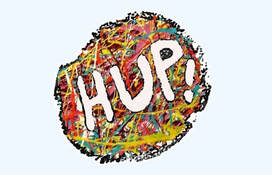
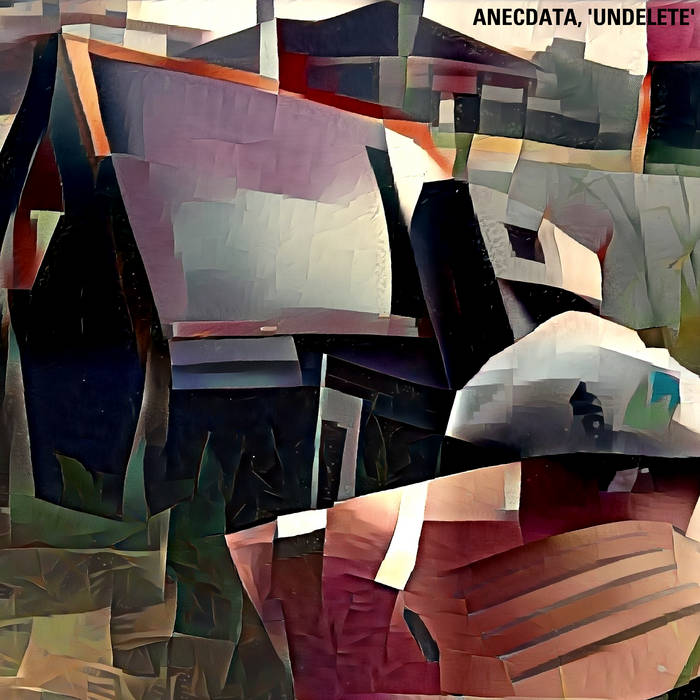
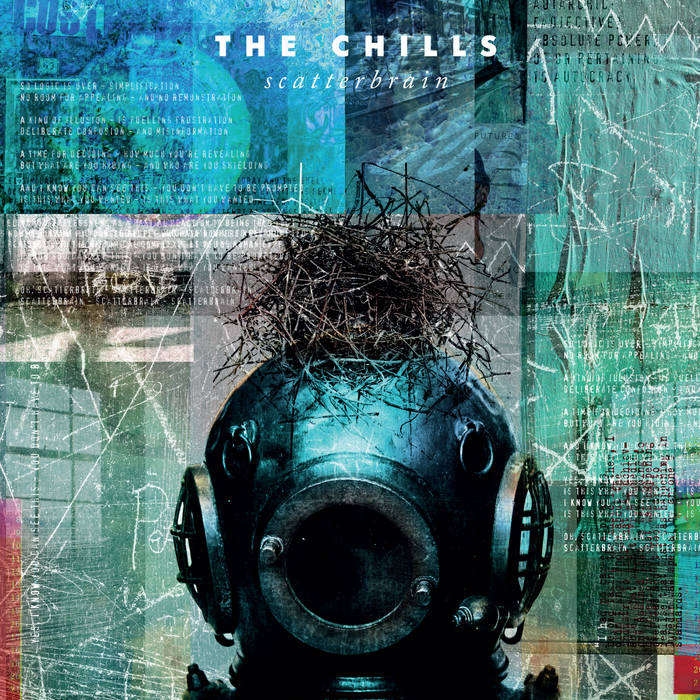
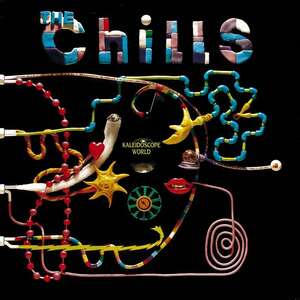
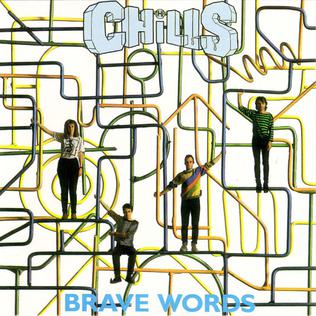
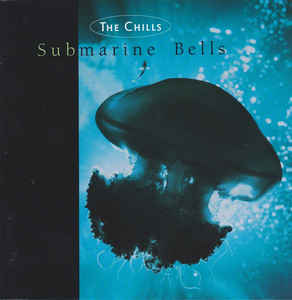
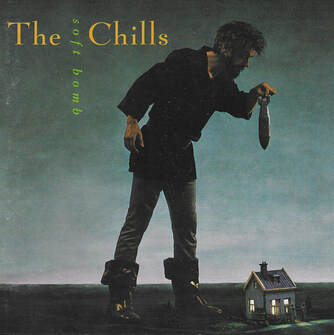
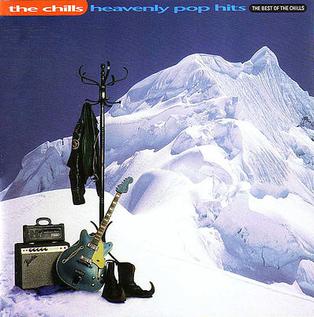
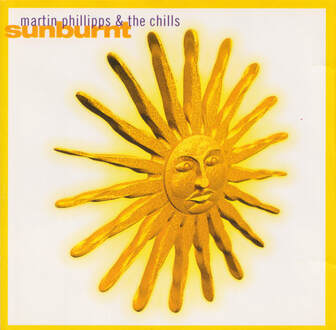
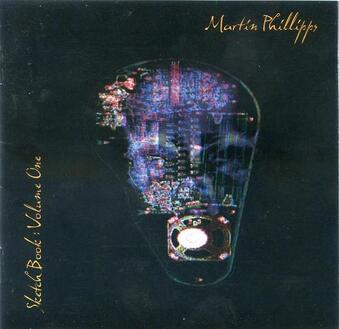
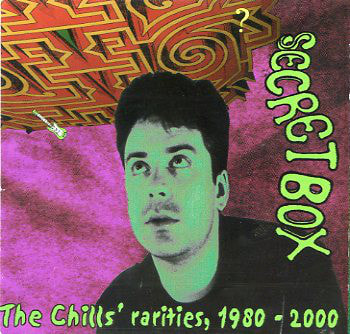
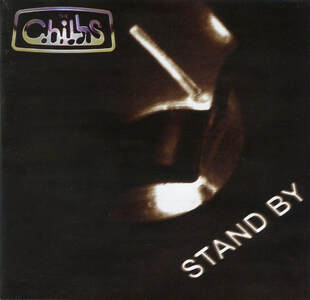
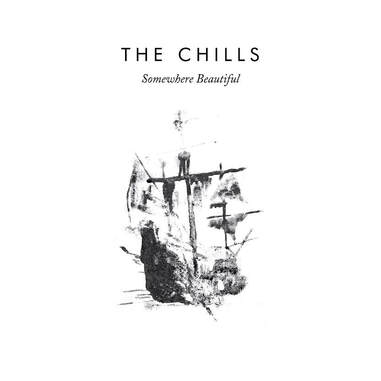
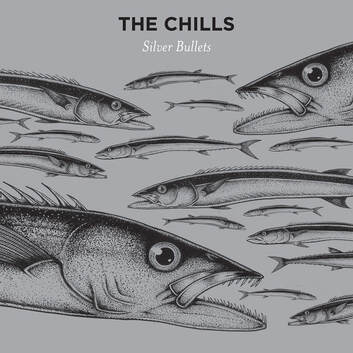
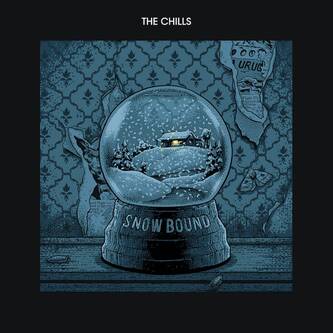
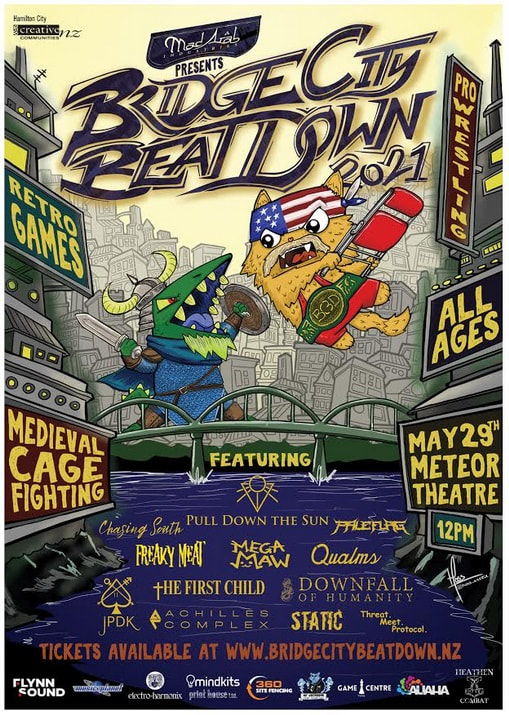
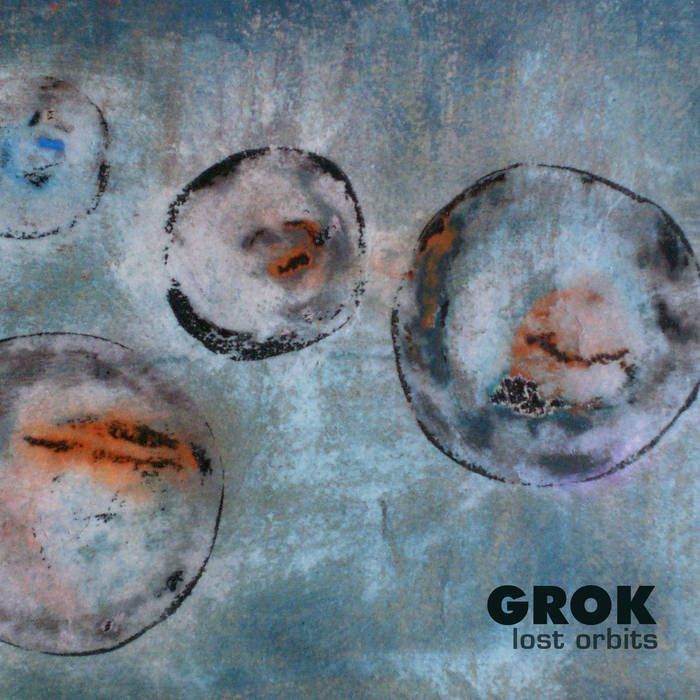
 RSS Feed
RSS Feed
